Summer 2 Curriculum Maps

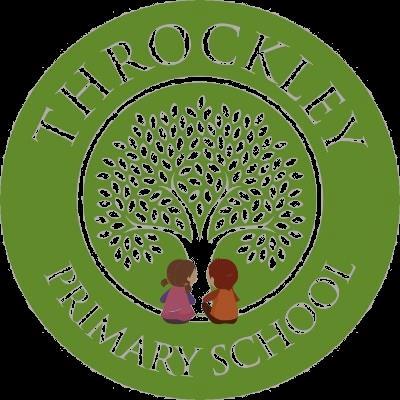
Literacy:
This half term, the children will become super heroes and soar through the last part of the year, getting ready for Reception. They will read books about heroes and what makes someone special. They will charge up their super memories by recalling stories that they have heard and using story maps to recap on important events.
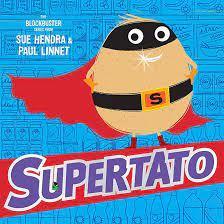
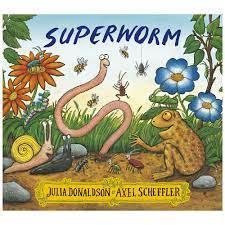
The children will continue to develop their phonetic knowledge as they continue to learn and identify the picture rhymes associated with Read, Write Inc. This will support them with their transition in to Reception.
Communication and Language:
The children are now capable to sit for a longer time on the carpet area during group time discussions, actively listening and responding accordingly. The children will continue to respond to instructions and having more independence in asking for equipment that they need to complete their tasks. The children will develop a stronger sense of time, especially past events, as they look back through their work in nursery and talk about their successes.
Mathematics:





The children will be encouraged to make marks and symbols associated with numbers to five and beyond. They will continue to count both physical objects and things that cannot be held such as claps, jumps and hops. The children will look at different ways of making numbers with physical objects. They will discuss how numbers can be made greater by adding more ones.

Nursery Curriculum Map

Summer 2
Understanding the World:
The children will look at how they can be a super hero themselves by looking after the planet. They will take part in litter picks and talk about recycling. The children will find out about what types of food and drinks they have to have to be super healthy. Nursery will spend time in the allotment area, exploring where their food comes from and how it grows. They will continue to learn about the importance of oral and personal hygiene.
Physical Development:
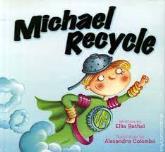
As the warmer weather arrives, the children will have more opportunity to develop their fundamental movement skills in the outdoors. They will have P.E lessons every Monday and continue to use the football pitch where they will play running, catching and kicking games. The children will take part in practise sessions leading up to sports day.
Expressive Arts & Design:
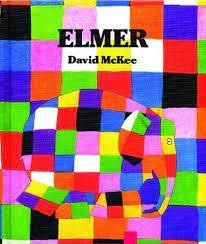
The children will use their creative skills to make props to support their imaginative play (masks, capes, super belts). They will also be encouraged to take ownership of their creations and label each with their name. Children will continue to learn and sing familiar nursery rhymes and numeracy songs. They will have access to musical instruments through continuous provision and take part in call and response songs. They will showcase some of these songs at an end of year performance.
Additional Information:
As the warmer weather arrives, we ask parents/carers to ensure that their child has sun cream applied before school. Unfortunately, we cannot apply this in school. We would also encourage a sun hat/cap with a name attached. Important

Personal, Social and Emotional Development:
Children have more of a sense of risk assessment and danger when discussing the emergency services and their responsibilities. Children will engage in pretend play with their peers and take on imaginary roles. They will also talk about themselves in a positive manner and reflect on their successes and celebrate these at the end of year performance. The children will continue to use the zones of regulation to explain their feelings and be more efficient at regulating these.
dates 6th July - Welcome to Reception Meeting 9:30 am 7th July – Sports day 9:30am-11am 11th July - Nursery Graduation/ PACT – 2pm
Mathematics:








Children will continue to deepen their understanding of numbers to ten. This will include counting, the composition of numbers and ordering numbers. They will continue to work on number bonds, doubles and sharing quantities equally. Children will be encouraged to use their mathematical skills during their child initiated learning time and when playing games.
Expressive Arts & Design:
Children have an exciting half-term where they will be making and using lots of props in their learning. They will be encouraged to make things to enhance their play. Children will use ‘Someone Swallowed Stanley’ as inspiration to reuse objects and create things with recycled materials.
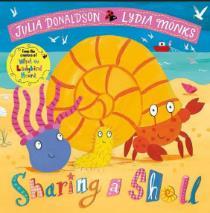
We will continue to explore songs and rhymes.
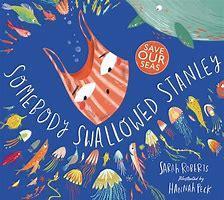
Physical Development:
The children are very excited about our upcoming Sports Day (5th July). They will spend time in their PE sessions working on the different skills needed to participate in the different events. Please make sure your child has the correct PE kit in school (black shorts, green or white t-shirt and plain black plimsolls or white trainers – additional details on the uniform policy on the website). In class, we will continue to develop strong fine motor skills to support with letter formation.
Reception Curriculum Map

Understanding the World:
Children will learn about different animals and the habitats they live in. They will explore the story ‘Someone Swallowed Stanley’ to introduce how important it is to make sure we recycle and don’t drop litter. Children will take part in STEAM Week to explore lots of exciting activities. They will have opportunities to think like a scientist throughout the week.
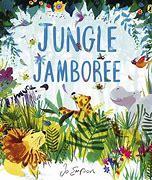
Summer 2
Personal, Social and Emotional Development:
As we move towards the end of the year, we will be working hard to prepare the children for their transition to Year 1. They will have opportunities to think about their own achievements and what they are proud of. There will be time to reflect on our learning throughout Reception. Children will be learning about being healthy as part of our Sports Week activities.
Literacy:
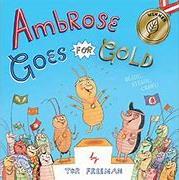
Communication and Language:
We will be spending lots of time focusing on the children’s understanding of who, what, where, when and why questions. We will also be encouraging children to give reasons to support the answers they give. Children will be support by staff modelling sentence stems. For example: I think…because…
Children will continue to take part in daily phonics sessions.
Children will be becoming increasing familiar with recognising the sounds for each letter of the alphabet and digraphs such as sh, th, ch, qu, ng, nk, ay, ee, igh, ow and oo. They will continue to learn to read and write words, phrases and sentences that including the letters and digraphs listed above. We will continue to enjoy a range of high quality texts to inspire learning and introduce new vocabulary

Additional Information:
Please check all uniform has clear names in (some have faded). Children take coats and jumpers off at playtime and it can be tricky to match them back up to the correct children without the names! Please ensure children have sun cream applied before school during the summer term. They are encouraged have a named cap/hat to wear outside. PE days will usually be on Thursday. . Please ensure your child has their full kit in school at all times (including shoes). Earring should be removed for PE days and Sports Day.


Year 1 Curriculum Map
Mathematics: In Mathematics, we will continue to explore numbers to 20 and beyond. We will look at doubling, odd and even numbers, addition and subtraction and measurement. The children will learn to identify and count coins and explain the value of 2p, 5p and 10p coins. Then they will look at position and direction and finally explore time learning to tell the time to the hour and half past the hour.
Summer 2
Science – Plants:
The children will identify and name different plants and trees. The children will grow their own plants to learn about their structure and requirements to survive. This builds on naming common plants and planting a seed (EYFS).
English:
* Link to science – plants and animals.



The children will read the story ‘The Last Tree’. They will retell the story in their own words and think about the importance of the environment and sustainability.
Geography – Where do different animals live?
We will use simple field work and observational skills to study the geography of their school. They will investigate the animals that live in our school grounds and dev is a simple map and use it to plot the location of the different animals found. We will also look at animals found across the world building on our knowledge of continents and oceans.
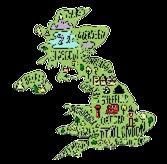
Art - collage
The children will explore the visual and tactile qualities of natural and manufactured objects.
This builds on the children being able to hold drawing tools correctly which they learned in the early years.
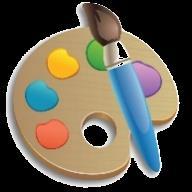
DT– How can 2 squares of fabric keep you warm?
Then they will learn ‘How to Help a Hedgehog and Protect a Polar Bear’ and inform others by writing a fact file.

They will continue to inform people about how to protect nature and animals of their choice by writing their own animal shape poem.
History – What is special about the British monarchy?
The children will explore the concept of empire. They will look at changes in the British monarchy in their lifetime. We will study the life and childhood of Queen Elizabeth 11 and compare this to their own era.
The children will learn how to create a running stitch, selecting the correct tools for sewing and learn how to thread a needle. They will use their skills to create a final piece.
* Link to science and PSHE





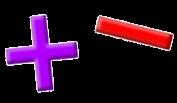


Phonics - Children will have a daily phonics lessons and will continue to be taught to read using the Read Write Inc phonics scheme. They will learn 3 new sounds each week and will practise reading words containing new and previously taught phonics through decodable books matched to their ability.


Computing: Consolidation




Children will recall and revisit their learning throughout the year to ensure they have made and maintained progress across the three strands. This builds on all learning to date.
RE – What is special to Jewish people?




Children will be introduced to the Sefer Torah (The Torah scroll), which is the focal point of Jewish worship and the source of Jewish teaching, custom and practice. Children learn about how the Torah is regarded and treated and why it is so precious to Jewish people. They have opportunities to consider what rules and teachings influence their own lives and what they value.
Music: Pulse, rhythm, active listening, performing and singing.
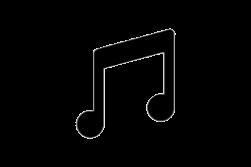

PSHE: Living in the wider world.
Builds on understanding

The children will play games, perform notation as body percussion, identify a variety of instruments by their sound and use them to play simple notations, listen to orchestral/folk/modern music, identify and compare the moods, emotions and genres of two songs. The children will compose a simple piece showing that they can understand the difference between simple rhythms and a pitch pattern.
of Easter covered in EYFS.
We will be exploring the theme of living in the wider world. Looking at community, economic wellbeing and careers.
Builds on previous learning in year 1.
PE – hit, catch and run
In PE this half term, we will begin to link running and jumping. We will continue to develop our skills in throwing and catching a variety of objects. We will begin to use equipment to hit a ball. Builds on fundamental skills (EYFS)
Reading and Spellings at home:
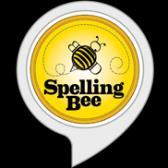
To reach their full potential, children must be reading aloud with an adult at home every night. Reading develops skills which are invaluable across the whole curriculum and this extra practise can have a significant impact on the amount of progress made, and the speed in which it is made. When you are reading or practising sounds with your child, please remember to sign in their reading record.
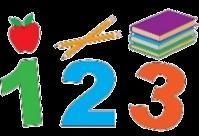

Maths Basic Skills:
Every Friday, we will be having a maths basic skills quiz. This will help the children to improve their fluency of our addition and subtraction skills and help them really embed their number bonds.
Knowledge organisers which outline the key content covered in History, Geography, Science and R.E. will be uploaded onto Seesaw.

Please take a look and quiz your child on their newly acquired knowledge!
Homework: In this half term, children will continue to receive one piece of homework each week. The focus will alternate between phonics and maths on a fortnightly basis. Homework will be sent out on Friday afternoons and will be required back in school by the following Friday. Please encourage and support your child with their homework by making sure it is completed.
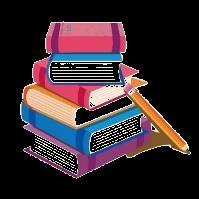
Year 2 Curriculum Map
This half term, we will be reading ‘The Worst Witch’ by Jill Murphy. We will use the text as inspiration when creating an alternative ending to a specific chapter within the story. Alongside this, we will continue our learning about writing structure and how to construct detailed paragraphs. We will also be introducing the concept of consonants and vowels and how this impacts whether we use ‘a’ or ‘an’. Extra treats!
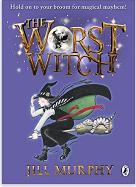
To support our learning in humanities, we will be reading ‘Paddington’s Guide to London’ by Michael Bond and following his adventure to our country’s capital! geography

Summer 2
Mathematics:
In mathematics, we are broadening our understanding of multiplication and division through a range of problem solving activities. We will also discuss how these skills help us when living in the wider world. We will then move on to measuring, using real-life examples to measure length, capacity, mass and temperature.
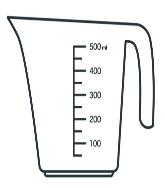

Science– Plants
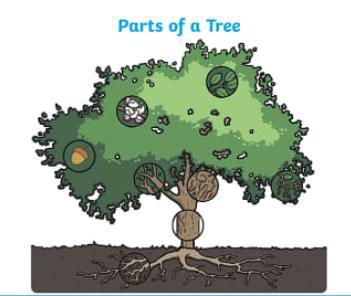
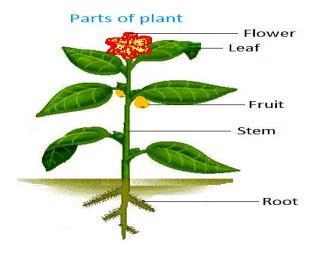

In summer term, we are going to be little gardeners! We will be planting seeds and observing their progress over time, determining what it is that plants need to grow healthy and flourish. We will also be identifying the parts of a plant and exploring each of their vital functions. We will compare a range of plants through an exploration of wild plants and garden plants.
As always, we will continue to build our knowledge, pace and fluency with the 2, 5 and 10 times tables.
Geography
What will we see if we visit London?
We are continuing our exploration of our country’s capital this half term!
We will refresh our knowledge of the UK and virtually visit some famous landmarks. We will be comparing London to other places around the globe to help us identify what makes it so special.
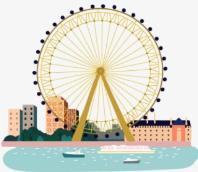
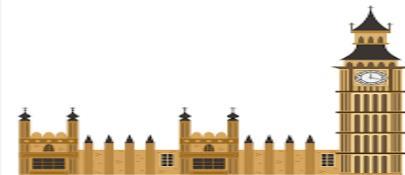
*Link to English







Art - Printmaking.
This half term in art, we will make prints using natural objects and learn how to make a collagraph printing block. We will combine printing techniques to create repeated patterns inspired by William Morris.


English
:
Computing:
In computing, we are consolidating the skills that we have learned and developed throughout the school year. We will be looking closely at copyright and ownership as well as how to be good digital citizens.

PSHE: Careers

We will delve into our favourite subjects this half term and research the career paths we could embark on as adults. We will look at significant people in each of the curriculum areas.
PE – Run, jump, throw:
Children will throw and handle a variety of objects. They will develop power, agility, coordination and balance whilst negotiating obstacles showing increased control.
We will also be building our stamina for sports day activities where we will compete in house groups.
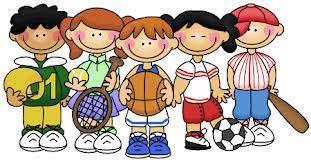
Phonics and Spelling:

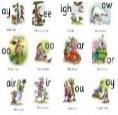
We will continue to embed our Set 2 and Set 3 sounds, whilst being introduced to Year 2 spelling patterns to become fluent with our spelling.
Times table Tests:





We will continue to improve our fluency and recall of the 2, 5 and 10 times tables with our weekly tests.
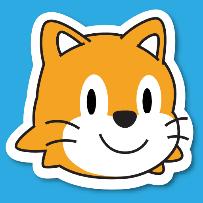

Reading and Spellings at home:

Music:


As part of our end of year assembly, we will be rehearsing songs to perform.
We will be showcasing this to all of our parents and carers in July (details to follow).
RE: What does God being active in our lives mean to Christians and Jewish people?
Children will draw on their previous knowledge from their autumn learning to deepen their understanding.
Knowledge organisers which outline the key content covered in
Science and R.E. will be uploaded onto Seesaw

Homework:
To reach their full potential, children must reading aloud with an adult at home every night. Reading develops skills which are invaluable across the whole curriculum and this extra practise can have a significant impact on the amount of progress made, and the speed in which it is made. When you are reading with your child, please remember to sign in their reading record for a chance to win fantastic prizes, including books from our very own Throckley Book Shop!
In Year 2, children will receive homework through Seesaw every Friday that will consolidate their learning from the week. This is required to be completed by the following Friday. Please support your child with their homework, encouraging them to talk about similar tasks they have been doing in school, so that they become confident.
 *Link to PSHE
*Link to PSHE
History,
English:


Children are starting their final term of Year 3 by writing a tanka poem inspired by ‘The Sound Collector’ by Roger McGough. This type of poetry originates in Japan and follows a short yet varying syllabic structure throughout. Children will focus on possessive apostrophes in grammar lessons and apply this learning when creating their own tanka about their school mornings. Children will continue to delve into the story of ‘Lenora Bolt Secret Inventor’ by Lucy Brandt. Applying the VIPERS reading disciplines, children will broaden and deepen their understanding of vocabulary, inference, predictions, explanations, retrieval and summaries in our whole class reading sessions.
Year 3 Curriculum Map

Summer 2
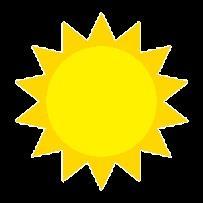
Mathematics: In mathematics, children will build on their knowledge of fractions by placing non-unit fractions with the same denominator on number lines to order, compare, add and subtract. They will represent a whole as a fraction in different ways and use this to solve problems involving subtraction.
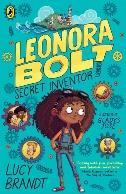

Children will then explore how to make compound shapes by joining two polygons in different ways and use composition and decomposition. They will also extend lines to identify parallel and perpendicular lines.




Science – Plants: This half term children will build on their knowledge from KS1 to identify and describe more parts and functions of plants. They will explore what plants need to survive and grow as well as investigate the way in which water is transported within plants. Understanding the life cycle of plants, will support the children in explaining the processes of pollination, seed formation and seed dispersal.
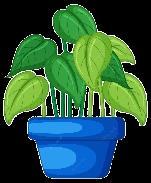
DT – Food and Nutrition – What do we mean by a balanced diet?
RE – Who is Jesus?
This half term, children will investigate what is known about Jesus through history and the gospels. They will explore how Jesus is represented through art in different periods, places and think about what this conveys and reflect on their own interpretations.
Geography – We’re Going On A Summer
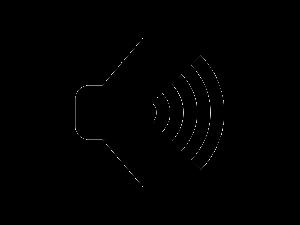




Holiday, But Where? This unit builds upon children’s knowledge of human and physical geographical features and their knowledge of the UK learned in Key Stage 1. Children will name regions of the UK and identify where would be suitable for a coastal, rural and urban holiday. Linking to our curriculum driver ‘Understanding Our Place In The World,’ children will survey people about their holidays.
In this block, pupils will consider what a balanced diet is. They will make three products that are often bought pre made or highly processed. These dishes will be a fruity yogurt, DIY popcorn and chips! Children will consider the importance of high standards of hygiene throughout the unit.
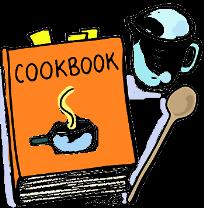
Art – Textiles – Pattern and Texture
Children will explore pattern and colour combinations. They will build on prior skills and use collagraph, plasticine blocks and tie-dye. Children will explore positive and negative space as well as line and shape to create a paper collage.
Computing: This half term, children will consolidate their learning across all three strands: Computer Science, Information Technology and Digital Literacy. They will apply their prior learning to deepen their knowledge using Scratch, iLearn2 and ProjectEVOLVE.
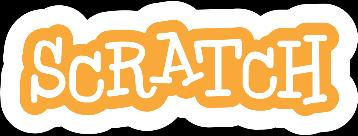
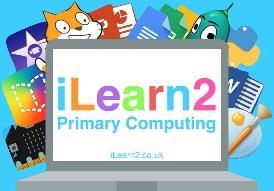
PSHE





– Living
In the Wider World
Children will explore economic wellbeing this half term. Children will identify what money is, different currencies around the world and why it is important to save.
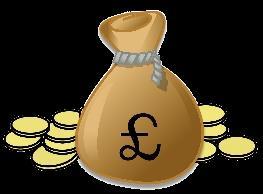
PE – Athletics: Building on disciplinary learning in Year 2, children will develop their athleticism. Children will become more confident in running, jumping and throwing. This will help them in preparation for our Sports Day.
French:

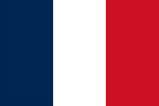
Music: Children will develop improvisational solos in a drumming piece. They will compose tuned accompaniment in drumming piece including drones.
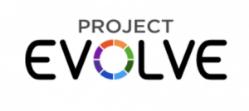


In French, children will recognise new landmarks in London. They will learn how to say what and where they might go on holiday.
Times
Tables and Basic Skills:

Children should all be able to quickly recall addition and subtraction facts to 100 and the 2, 5 and 10 times tables. This year we will be catering our learning towards the 2, 3, 4 and 8 times tables. It is essential for children to be accurate and quick with tables so that they can confidently access the full maths curriculum. Keep practising for your weekly Friday tests!
Reading and Spellings at home:


To reach their full potential, children must be reading aloud with an adult at home every night. Reading develops skills which are invaluable across the whole curriculum and this extra practise can have a significant impact on the amount of progress made, and the speed in which it is made. When you are reading or practising spellings with your child, please remember to sign in their reading record for a chance to win fantastic prizes.

Knowledge organisers, which outline the key content covered in History, Science and R.E. will be uploaded onto Seesaw. Please take a look and quiz your child on their newly acquired knowledge!
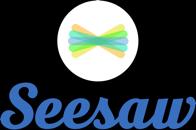
Homework: In Year 3, children will receive two pieces of homework each week. At home, they will spend time on Lexia and TTRS focussing on learning from our lessons as well as times tables/basic skills practice. Homework will be sent out on Friday afternoons and will be required back in school by the following Friday! Please encourage and support your child with their homework by making sure it is completed on time this will consolidate your child’s learning as well as earning them achievement stars.

English:
This half term, children will be reading ‘Oliver Twist’ by Charles Dickens. This text links to our History unit about the Victorians. ‘Oliver Twist’ is about an orphan in Victorian London who is brought up in a workhouse. The children will explore what is was like to live in a Victorian workhouse to help them understand how difficult Oliver Twist’s life would have been. Children will be challenged with writing their own ending to this story, using their knowledge of characters and Victorian London to help them.

Year 4 Curriculum Map

Summer 2
Mathematics:
This half term, we will kick off our learning with a recap of multiplication and division facts to support the children in the run up to their multiplication checks.

Science (Physics): Electricity

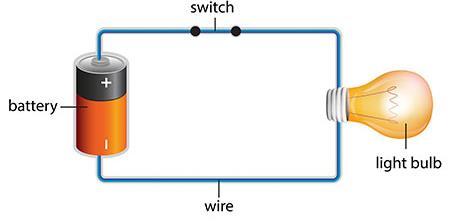





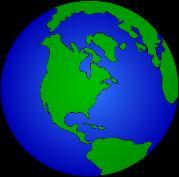



We’re continuing this electrifyingtopic this half term by getting hands on with our learning!
In summer term 2, the children in year 4 will get busy building working series circuits, discovering what features must to included and how they can be adapted. Finally, they will investigate the impact of conductors and insulators.
After this piece of writing, children will write a fact file on a significant scientist.
History: Did the Victorian Empire benefit everyone?
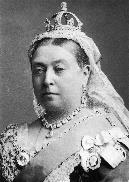
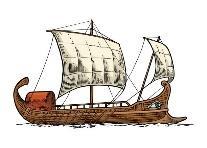
This half term, we will continue to explore the question ‘Did the Victorian Empire benefit everyone?’ Children will consider the technological advances of the era as well as the role of the British Empire in combatting slavery and promoting democracy. However, children will consider how the Victorian Empire did not benefit everyone. For example, the children will explore the brutal conditions of workhouses for poor people including young children.
Following this, we will be looking closely at symmetry in 2D shapes using mirrors, explore time where we will convert between analogue and digital, and finally look at division with remainders. What an exciting half term of learning!
DT: Textiles
Geography: Did the Romans make Britain better?
Building on their knowledge of change and land use from autumn term, children will continue to locate a range of countries on a world map and identify how trade links, travel and a more advanced civiliasation may have improved where we live today.
Pupils will learn how to sew a button on to a fabric and identify the different functions of fastenings this half term. They will also create a solution to the problem of a towel slipping off a hook!
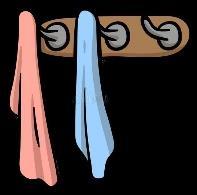
Art:
Studying the sculpture work of Alberto Giacometti. Children will make human sculptures with a range of materials, including foil and plasticine.
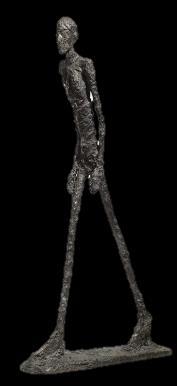
Computing:
This half term, children will recall and revisit their learning, including: further developing their coding skills in Computer Science and continuing to build on the seven areas of online safety in Digital Literacy. For example, online bullying awareness.
PSHE – Careers
PE –Athletics




RE – What are the key elements of Hindu worship and what do they mean?
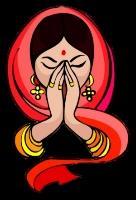
Throughout this half term, year 4 will learn the story of Rama and Sita, link common themes of festivals such as Diwali and Holi and explain what happens during the festival of Holi.
In summer 2, year 4 will use their understanding of economic wellbeing to explore why people choose certain careers. They will look at incomes and spending to build an understanding of why money is so important and where it comes from.

Building on a range of throwing, running and jumping skills learnt in Year 3, the children will engage in relay races (to practise the most effective way to pass a baton), javelin challenges (to practise holding and releasing) and individual sprints, honing their skills and techniques in the run-up to Sports Day in July.
French:
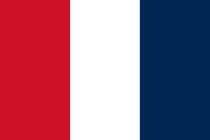
In French, children will be further developing their knowledge of complex sentences by adding further fronted adverbials to their repertoire. They will focus on using co-ordinating conjunctions to add evermore varied masculine and feminine nouns to their menagerie of animals, with corresponding colours and sizes.

Music:






Times Tables: Children should all be able to quickly recall all times tables up to 12 x 12 = 144 now. It is essential for children to be accurate and quick with tables so that they can confidently access the full maths curriculum. Keep practising!
Reading
and Spellings at home:

To reach their full potential, children must reading aloud with an adult at home every night. Reading develops skills which are invaluable across the whole curriculum and this extra practice can have a significant impact on the amount of progress made, and the speed at which it is made. When you are reading or practising spellings with your child, please remember to sign in their reading record for a chance to win fantastic prizes.

Children will learn an array of songs in preparation for a special music assembly in July. Children will learn how to keep a beat, sing in tune and coordinate actions into their songs.
Knowledge organisers which outline the key content covered in History, Science and R.E. will be uploaded onto Seesaw. Please take a look and quiz your child on their newly acquired knowledge!
Homework: In Year 4, children will receive two pieces of homework each week. They will have one piece of English or maths homework and one piece focussed on times tables/basic skills practice. Homework will be sent out on Monday and will be required back in school by the following Monday! Please encourage and support your child with their homework by making sure it is completed on time.
English: Whilst reading Cosmic by Frank Cottrell-Boyce, children will explore how characters and be built up and portrayed by authors. Later in the term, children will use ‘The Lost Thing’ by Sean Tan as inspiration to write persuasively to encourage people to rehome lost items. They will explore how to utilise sentence structure and punctuation for effect and edit their work to ensure they have the greatest impact.

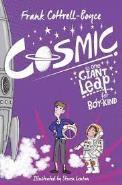
Year 5 Curriculum Map
Summer 1
Mathematics: In mathematics, children will learn to multiply and divide fractions and will convert between fractions, decimals and percentages. Later in the term, they will be exploring angles and learn to use a protractor to accurately measure amounts of turn. Children will apply the mathematics that they have learned this year to a range of real-life problem solving situations.
Science – Chemistry – Properties and Changes of Materials
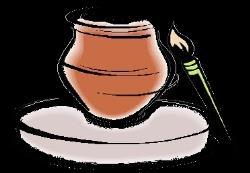
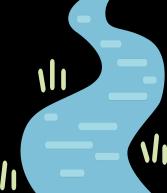

Building on learning about the properties of materials, children will explore the differences between mixtures and solutions and they will devise an investigation to see how best to separate substances. Children will explore the difference between reversible and irreversible changes and conduct experiments to aid them to determine which process has taken place.
History – Barbaric or civilised: How did the Vikings develop over time? As we learn about the Vikings, we will build on our understanding of civilisation (Egyptians and Romans in year 3, Greeks in year 4 and Maya in year 5). We will make comparisons between the Vikings and other civilisations both at the time and that we have studied. We will learn all about what life was like for the Vikings, as well as their invasions and why some people tried to stop the Vikings. Children will develop chronologically secure knowledge and understanding of this element of history.
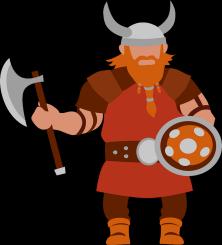
Geography – What is the journey of a river? We will build on our learning about mountains and rivers in year 3, looking more in depth at the parts of a river and how land is used around them. We will develop locational knowledge by looking at well-known UK rivers and the regions these flow through, as well as the journey of the River Tyne and what it passes as it flows towards the North Sea. We will look at why it is good to be near the River Tyne, examining what the River Tyne has been used for over the years and how its use has changed. Children will compare places that it passes through now to what they were like in the past.
Art – 3D art using clay
Children will explore materials and techniques used to create 3D art. Pupils will develop visual-spatial skills as they analyse the shape and form of 3D objects. They will develop the skills required to manipulate clay, including joining clay by a score and slip method. Children will experiment by creating braids, twists and small discs.

Design Technology – Textiles




Children will investigate the durability of different materials before repurposing a pair of jeans to make a bag. Children will also use beeswax to make a reusable sandwich wrap.

PSHE: Living in the wider world.
Children will explore how they can be an active member of their local community. They debate how taxpayer’s money should be spent to best benefit the community that they live in.
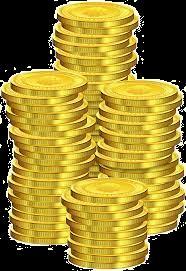
ICT/Computing:





This half term, children will revisit their learning on Copyright and Ownership from Autumn 1. Children will create their own video project using iMovie on an iPad and our green screen, learning to airdrop between iPads, import movies, rearrange the order of their clips, crop their clips and create smooth transitions.
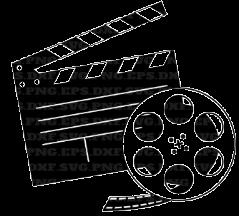

PE – Athletics and Outdoor Adventure Activities
Children will develop their running, jumping and throwing skills in preparation for Sports Day. Children will put up a tent, build a camp fire, make 3D maps and take part in orienteering.
Music: Children will continue to receive specialist music tuition and widen their musical vocabulary. They also will follow simple musical notation to play tunes on the xylophone.
RE –What does it mean to belong to a Muslim community?
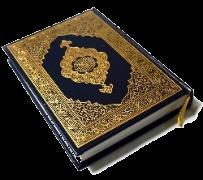
Children will learn about the Mosque and the role it plays in the Muslim community. They develop their understanding of how religious beliefs are expressed in practice by studying how worship takes place in a Mosque.
Times Tables:
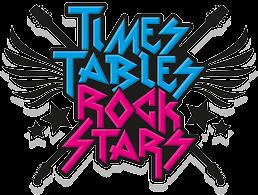
French:
In French, children will build on their knowledge of numbers. They will be able to use ordinal numbers (first, second, third) and further explore the districts of France (arrondissement).
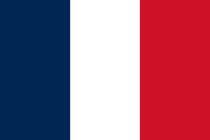
They will also revisit and continue to build upon their ability to tell the time in French and apply adverbs to phrases.
Children should all be able to quickly recall all times tables up to 12 x 12 = 144 now. It is essential for children to be accurate and quick with tables so that they can confidently access the full maths curriculum. We are now having weekly times tables tests to check children’s recall so keep practising regularly at home!

Reading and Spellings at home: To reach their full potential, children must be reading aloud with an adult at home every night. Reading develops skills, which are invaluable across the whole curriculum, this extra practise can have a significant impact on the amount of progress made, and the speed in which it is made. When you are reading or practising spellings with your child, please remember to sign in their reading record for a chance to win fantastic prizes!

Knowledge organisers which outline the key content covered in History, Science and R.E. will be uploaded onto Seesaw. Please take a look and quiz your child on their newly acquired knowledge!
Homework: In Year 5, children will receive one piece of homework each week relating to work we have done that week. Homework will be sent out on Friday afternoons on Seesaw and will be required back in school by the following Friday! Children can also take a paper copy if they would prefer. Please encourage and support your child with their homework by making sure it is completed as this supports their learning in school.

Year 6 Curriculum Map
English:
This half term will continue to develop a variety of grammatical devices (word class, tenses, speech and punctuation). As well as this, pupils will examine a plethora of poetry, fiction and nonfiction texts to consolidate a range of reading strategies and comprehension skills. Within reading sessions, we will immerse ourselves in our class book as we will enjoy reading ‘The Boy at the Back of the Class’ by Onjali Rauf. This emotive novel will incite important discussions surrounding discrimination, tolerance and stereotypes; you’re in for a treat, Year 6!
Summer 2
Mathematics:
In mathematics, we will continue to deepen our understanding of key operations and formal methods to aid arithmetic skills. As well as this, pupils will consolidate their understanding of properties of shape such as: nets of shapes, constructing shapes accurately and comparing shapes and their characteristics. As pupils approach secondary school transition, they will apply their knowledge of the Key Stage Two maths curriculum to solve real life, maths-based problems.
Science – Evolution and inheritance.

Continuing this riveting topic, featuring Charles Darwin and Alfred Wallace, children will recognise that living things have changed over time and that fossils provide information about living things that inhabited the Earth millions of years ago. In addition to this, pupils will explore the cycle of life through reproduction and discuss how offspring are similar, but not identical to their parents. During this unit, the children will explore Darwin’s theory of natural selection and consider how animals adapt to survive. To round off their science lessons this year, children will consolidate their knowledge on Electricity through practical, hands-on lessons using circuits.
RE – What is humanism?








Children will discover the belief system of humanists and consider the key principles they follow. They will explore significant figures in the humanist world. They will utilise their previous learning in order to compare humanism with other religions.

History- How fierce were the Anglo-Saxons?
Within this unit, pupils will examine significant figures (such as Bede and Alfred the Great) and unearth the influence they had. Using primary and secondary sources, children will uncover facts about their local area.
Geography- Why was Britain a desirable settlement for the Anglo-Saxons?
Linking to their history study children will also deepen their understanding of the Anglo-Saxons within geography. They will explore the properties of a desirable settlement before examining the land structure of Britain at the time.
DT- How strong is a piece of spaghetti?
Children will test the strength of a piece of spaghetti and then use their understanding to construct a 1m tower.
Art- Painting and Collage
Pupils will develop refined skills in layering and overworking. By studying Pablo Picasso and Patrick Caufield to create a series of still life drawings combined with collaging.
ICT/Computing: This half term, children will be become more confident when using an IPad independently as they utilise their teamwork skills in order to create their own video. They will use the IMovie app to design their video about their time at Throckley adding sound effects, pictures and using the green screen!

*LinkstoPSHE.
PSHE- Economic wellbeing
This half term, children will build on their geographical knowledge of economy and consider why saving money is important. They will discover how taxes work and consider why we have them.
*Linkstogeography
PE –Athletics


Children will develop their athletic skills as they prepare for Sports Day. During our lessons, they will extend their running, jumping and throwing skills as they build their confidence. The children will challenge themselves by recording each other and suggesting helpful improvements.
*Linkstocomputing.




French:
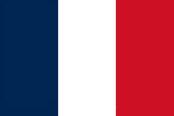
In French, children will build on their knowledge of numbers as they develop their understanding of numbers to 100. Using this knowledge, children will begin to ask what time it is and respond appropriately. As well as this, their understanding of number will allow them to learn their 1o, 6 and 4 times tables in French.
Times Tables: Children should all be able to quickly recall all times tables up to 12 x 12 = 144 now. It is essential for children to be accurate and quick with tables so that they can confidently access the full maths curriculum. Keep practising!
Reading and Spellings at home:


To reach their full potential, children must be reading aloud with an adult at home every night. Reading develops skills which are invaluable across the whole curriculum and this extra practise can have a significant impact on the amount of progress made, and the speed in which it is made. When you are reading or practising spellings with your child, please remember to sign in their reading record for a chance to win fantastic prizes.
Important dates:
On the 13th of June, we will have our PACT morning where parents and carers are invited into school to share a lesson with their children.


Knowledge organisers which outline the key content covered in History, Science and R.E. will be uploaded onto Seesaw. Please take a look and quiz your child on their newly acquired knowledge!
Homework: In Year 6, children will receive two pieces of homework each week. They will have one piece of English homework and one piece of maths homework. Homework will be sent out on Tuesday afternoons and will be required back in school by the following Tuesday! Please encourage and support your child with their homework by making sure it is completed as this will aid them with their transition to secondary school.
































































































